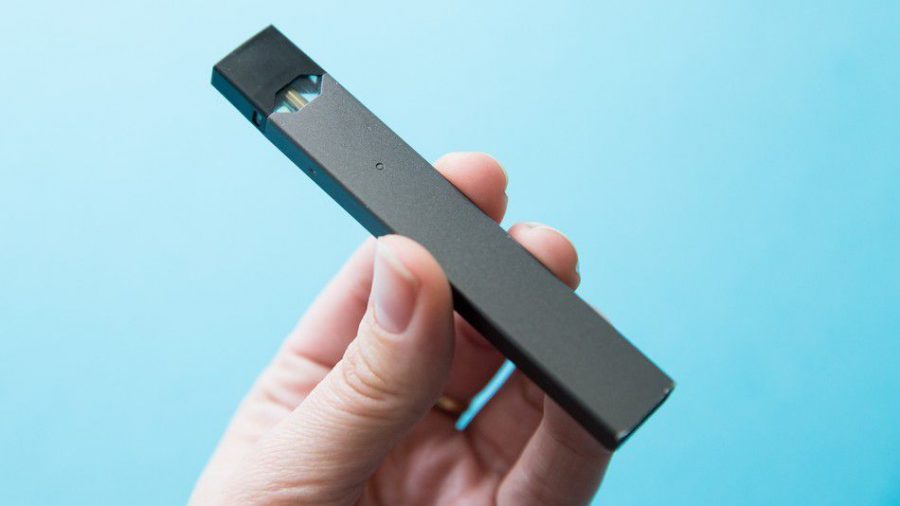An Open Letter to Teen Vapers
Dear teens who choose to vape:
You are full of potential. You can achieve great things if you try hard enough. And, you can do better than this.
The biggest health crisis is—as you know—vaping.
But, what you don’t know, or choose to ignore will hurt you.
Here are some things to consider:
What we know about vaping is that it’s new, smells like mint or mango or strawberry milk, and full of chemicals. After all, how else would they create all those artificial flavors?
But the chemicals in vape products aren’t the only thing causing people to worry.
In the last few months, scientists have speculated that vape companies are targeting the teen audience with all these sweet flavors.
An article published by NPR (National Public Radio), School Districts Sue Juul, Saying Student Vaping Drains Resources explains the action that some schools are taking by suing the company Juul.
The article says that three of the lawsuits “charge that Juul has hooked a generation of young smokers with its sweet flavors.”
So, not only are vaping companies targeting teens by marketing their products with sweet flavors, but they are endangering teens as well.
The underlying ingredient that teens can’t see happens to be a dangerous, addictive chemical: Nicotine.
According to TeensHealth from Nemours, nicotine affects brain development. Ingesting the chemical while the brain is still forming is dangerous and can affect teens’ focus, concentration and even their adult lives, not to mention that nicotine can lead to further addictions to harder substances, even other tobacco products.
The U.S. Food and Drug Association (FDA) is also looking into cases of lung illnesses and vape products’ connection to the cause of those respiratory illnesses.
The study is ongoing. However, there are some findings that I thought were important to mention. Even if you haven’t had chemistry yet, I’m going to simplify everything to be as understandable as possible.
The FDA collected vape products from consumers, hospitals, and state offices to test for common substances within the chemical make-up of each sample.
Something to note is that some of the samples tested contained THC, but not all of them. I only mention this because that is how the results are divided to analyze.
There were 1,100 total samples received, with 908 being connected to patients. What that means is that a majority of the collected vape products were linked to patients— A.K.A people who needed some sort medical care as a result of vaping.
Not all the “test subjects” were perfect, meaning that there was not enough liquid to test or only a small amount of liquid to test. Therefore, 699 is the number of vape products that the FDA was able to test in this lab.
Of the 699 usable samples, 448 were found to contain THC.
Now, there wasn’t a single substance that was in every sample, but there were certain chemicals which were found in many of the samples.
The most common ingredient that the FDA found in 49% of these THC products was vitamin E acetate.
Vitamin E acetate—also called alpha-Tocopherol acetate, Tocopherol acetate, Alfacol, Ecofrol and a lot of other long, scientific names—is “one of the most potent antioxidant tocopherols”(National Center).
Vitamin E acetate is also a chemical studied in cancer research. A published lab even concluded that it was able to aid tumor growth (Li).
Another separate lab discussed the chemical’s ability to inflame the lungs and colon and also cause cancer (Yang).
The article, “5 Vaping Facts You Need to Know” published by Johns Hopkins Medicine, says that “The CDC has identified vitamin E acetate as a chemical of concern among people with EVALI [E-cigarette or Vaping Product Use Associated Lung Injury].”
In short, chemicals like Vitamin E acetate are commonly in vape products and can cause harm, even cancer.
By providing some of these lab results, I’m not trying to scare you. Though this is an open letter addressed to “teen vapers,” the only thing I would like to do is provide a snippet of information that may make you question your choice.
If you or someone that you are close with uses vape products, I suggest you also read through some of the articles below. Many of the articles mentioned are already linked above as well.
It isn’t too late to quit.
Johns Hopkins Medicine. “5 Vaping Facts You Need to Know.” Johns Hopkins Medicine, www.hopkinsmedicine.org/health/wellness-and-prevention/5-truths-you-need-to-know-about-vaping. Accessed 5 Dec. 2019.
Li, Guang-Xun et al. “δ-tocopherol is more active than α – or γ -tocopherol in inhibiting lung tumorigenesis in vivo.” Cancer prevention research (Philadelphia, Pa.) vol. 4,3 (2011): 404-13. doi:10.1158/1940-6207.CAPR-10-0130
“Lung Illnesses Associated with Use of Vaping Products.” FDA, 29 Nov. 2019, www.fda.gov/news-events/public-health-focus/lung-illnesses-associated-use-vaping-products. Accessed 5 Dec. 2019.
Moxley, Elle. “School Districts Sue Juul, Saying Student Vaping Drains Resources.” NPR, 9 Oct. 2019, www.npr.org/2019/10/09/768591310/school-districts-sue-juul-saying-student-vaping-drains-resources. Accessed 5 Dec. 2019.
National Center for Biotechnology Information. PubChem Database. alpha-Tocopherol acetate, CID=86472, https://pubchem.ncbi.nlm.nih.gov/compound/alpha-Tocopherol-acetate (accessed on Dec. 5, 2019)
“Vaping: What You Need to Know (for Teens).” Kids Health, Sept. 2019, kidshealth.org/en/teens/e-cigarettes.html. Accessed 4 Nov. 2019.
Yang, Chung S et al. “Inhibition of inflammation and carcinogenesis in the lung and colon by tocopherols.” Annals of the New York Academy of Sciences vol. 1203 (2010): 29-34. doi:10.1111/j.1749-6632.2010.05561.x








Zach Feldman • Dec 6, 2020 at 8:17 pm
This aged well